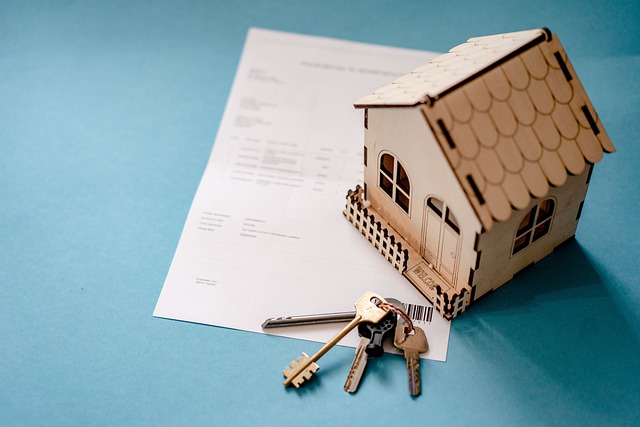Zoning laws are critical for managing land use and determining how properties can be occupied, with significant implications for the Address Occupant Lookup (AOL) process. These regulations dictate permitted land uses (residential, commercial, industrial), building size, height, setbacks, parking, and more, ensuring neighborhoods maintain order, public safety, resource conservation, and character. Local governments implement zoning laws to regulate land usage, guiding data collection in AOL systems by dictating property use and required records. Understanding these classifications is essential for accurate AOL, as they impact accessibility and utility of data, with mixed-use zones reflecting modern urban trends. Adhering to local zoning laws ensures legal compliance and precise data collection during AOL.
Understanding zoning laws is crucial for accurate address occupant lookup, enabling effective property research. This article provides a comprehensive guide, delving into the intricacies of zoning regulations and their impact on data collection. We explore the role of local governments in property regulation, common zoning categories, and challenges in maintaining precise address data. Additionally, we offer best practices for navigating these laws, ensuring successful Address Occupant Lookup in today’s complex real estate landscape.
- Zoning Laws: An Overview for Address Occupant Lookup
- The Role of Local Governments in Property Regulation
- How Zoning Affects Property Search and Data Collection
- Common Zoning Categories and Their Implications
- Challenges and Considerations for Accurate Address Data
- Best Practices for Navigating Zoning Regulations in Property Research
Zoning Laws: An Overview for Address Occupant Lookup

Zoning laws play a crucial role in organizing and regulating land use within a given area, including how properties can be utilized and who can occupy them. When it comes to Address Occupant Lookup (AOL), understanding zoning regulations is essential for several reasons. AOL processes require accurate and up-to-date information about the occupants of a property, which is often used for official records, security checks, or legal purposes.
Zoning ordinances dictate the permitted uses of land and structures, such as residential, commercial, industrial, or mixed-use districts. They also set guidelines for building size, height, setbacks, parking, and other factors. By adhering to these laws, property owners and occupants can ensure they are using the land in a manner that aligns with community standards and local government policies. This not only maintains order within neighborhoods but also safeguards public safety, conserves resources, and preserves the character of specific areas.
The Role of Local Governments in Property Regulation

Local governments play a pivotal role in regulating property and land usage through the implementation of zoning laws. These regulations are designed to ensure orderly development, maintain community standards, and protect public safety and health. In the context of Address Occupant Lookup (AOL), local governments maintain detailed records of property ownership and occupancy, which serve as critical data sources for various government services and law enforcement initiatives.
Zoning ordinances dictate the permitted uses of land and buildings within specific areas, influencing factors like construction types, density, and even environmental considerations. By adhering to these laws, governments can regulate the flow of information related to addresses and occupants, ensuring that AOL systems provide accurate and up-to-date data. This alignment between zoning regulations and address lookup capabilities is essential for maintaining the integrity of public records and facilitating efficient access to critical property-related data.
How Zoning Affects Property Search and Data Collection

Zoning laws play a pivotal role in shaping how property data is searched, accessed, and collected, particularly for crucial processes like an Address Occupant Lookup. These regulations dictate the permitted uses of land and buildings within specific areas, influencing the types of structures that can be constructed and the activities that can take place. For instance, residential zones restrict commercial use, while industrial areas may have stringent rules regarding noise levels and waste disposal.
When conducting an Address Occupant Lookup, understanding zoning requirements is essential to ensure accurate data collection. Zoning information helps identify the legal occupants of a property by defining who can reside or operate a business in a particular location. It also guides data compilers on the types of records to gather, such as property ownership details, building permits, and compliance certificates, thereby ensuring that the lookup process adheres to local laws and provides reliable results for various applications, including real estate, urban planning, and emergency services.
Common Zoning Categories and Their Implications

Zoning laws, which classify land uses into specific categories, are crucial for maintaining order and safety in communities. These categories, often referred to as zoning districts or zones, dictate how a property can be used based on factors like density, height, and types of businesses allowed. Understanding these classifications is essential for anyone interested in conducting an Address Occupant Lookup, as they significantly impact the accessibility and utility of data.
For instance, residential zones typically restrict non-dwelling uses, ensuring areas remain peaceful and suitable for living. Commercial zones, on the other hand, allow for a mix of retail, office, and industrial activities, fostering economic growth. Industrial zones often have specific requirements regarding noise levels and waste management due to their potential impact on surrounding communities. Moreover, mixed-use zoning combines residential and commercial or industrial purposes, reflecting today’s urban trends toward vibrant, integrated spaces. Each category has implications for property values, business operations, and the overall character of a neighborhood, making knowledge of these classifications invaluable for anyone engaged in Address Occupant Lookup efforts.
Challenges and Considerations for Accurate Address Data

Accurately performing an Address Occupant Lookup (AOL) can be fraught with challenges due to various factors that impact address data quality. One significant hurdle is the dynamic nature of residential and commercial properties—addresses change over time due to new constructions, demolitions, and relocations. This requires constant updates in mapping databases to ensure current information.
Moreover, inconsistencies in addressing practices across different regions contribute to data inaccuracies. Local zoning laws, street naming conventions, and postal systems can vary widely, making it difficult for AOL systems to match addresses precisely. To mitigate these issues, robust data validation processes are essential. This includes cross-referencing multiple data sources, employing geospatial mapping technologies, and implementing automated error detection mechanisms to verify the integrity of address records before they are made accessible through AOL services.
Best Practices for Navigating Zoning Regulations in Property Research

When conducting an Address Occupant Lookup, adhering to zoning laws is paramount for accurate and legal research. Best practices involve thoroughly reviewing local government records to understand specific zones and their permitted uses. This includes identifying residential, commercial, industrial, or mixed-use areas, as defined by the locality’s planning department.
For comprehensive property research, stay updated with regular changes in zoning maps and regulations. Consult official websites and public records for the most current information. Additionally, engage local experts, real estate agents, or lawyers familiar with the area’s nuances to gain insights into potential restrictions. This multi-faceted approach ensures compliance, enhances data accuracy, and provides reliable Address Occupant Lookup results.
Understanding zoning laws is pivotal for conducting comprehensive Address Occupant Lookups, as these regulations significantly impact property data collection and accuracy. Local governments play a crucial role in shaping land use through various zoning categories, influencing search results and the availability of public records. By navigating these complexities, professionals can ensure they adhere to legal requirements and obtain reliable address data, fostering better-informed decision-making in real estate and research. This knowledge is essential for effective property research, enabling users to decipher zoning regulations and access the most up-to-date and precise occupant information.



